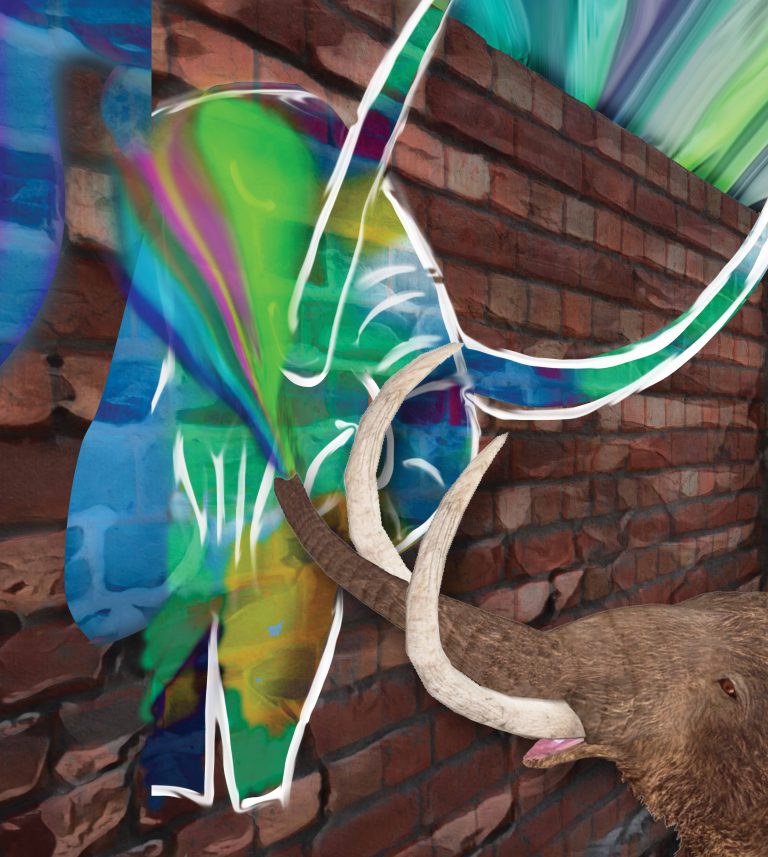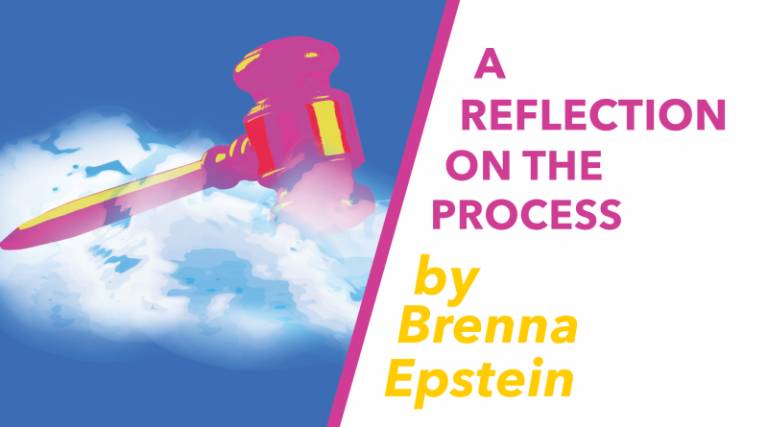Bloody Love
By Robert Onorato
Big Love is violent. There’s no way around it. You probably know this. You’ve read it, or heard about our production from an actor or production team member, or if nothing else have seen our poster, which makes it clear in no uncertain terms that blood gets spilled. In deference to the wishes of those involved, I’ll refrain from divulging too much about the specific mechanics of the plot which necessitated the creation of so many blood packs by our intrepid Props Master, Katharine Burkhart. Suffice it to say that Big Love is the closest Emerson Stage has yet come to a Tarantino film.
Violence onstage is a significant disturbance to an audience. Unlike in film, the stage magic required to execute an act of violence is complex, more dangerous, and cannot be manipulated through post-production, stunt doubles, or retakes. On film, an act of violence can be executed with stomach-turning realism. This is less often the case with stage violence. A punch or a slap is choreographed, and like any bit of stage business, relies upon a deception of the audience and a consequent understanding on the audience’s part that the violence is staged, and so the windup or recoil or sound effect might be faked. Sometimes this works, and sometimes this can take the audience out of the scene.
Occasionally, of course, an act of violence is accorded the full attention of multiple members of the production team, and some truly stunning stagecraft is employed towards the end of convincing the audience that an act of violence was wrought, irreparably, against the very living, breathing people we’ve been watching onstage for some-odd hours. This is the case with Big Love. Every design department had to collaborate to create the violent affects to go down late in the show. The scene is upsetting. The bodies remain onstage. Blood flies. The stagecraft pays off, in that we as the audience know that the actors aren’t dead…but the evidence before our eyes and the twisted excitement of the past five minutes discomfit us.
The sort of violence Big Love calls for has become more commonplace over the past few decades of Anglo-American playwriting. Sarah Kane’s plays are infamous for their shocking acts of violence, including the cannibalism of a baby in Blasted. Martin McDonagh has a reputation for shock-violence in his plays. His Lieutenant of Inishmore opens with a stage direction indicating that a character holds the corpse of a dead cat and bits of brain plop out onto the floor. Later in the play a scene starts with a tableau of a character pinioned to the floor via a crucifix stabbed in the back of his throat, and more cats meet their grisly ends. Kane and McDonagh, as well as writers such as Mark Ravenhill and Anthony Neilson, are part of an informal movement of British playwriting called “in-yer-face theatre,” wherein disturbing acts of sex and violence demonstrate troubling truths about the characters and, more largely, the society that commits them.
Acts of violence also bring the audience in proximity to disturbing sights and sounds in a ritualized way which allows a safe though nervy encounter with the mechanics and results of violence. I remember seeing Lynn Nottage’s Ruined at the Huntington several years ago. On several occasions actors pointed guns and waggled spears in the direction of the audience. The verisimilitude got me almost as terrified as the characters would have been. In this way, live theatre is different from film.
The presentation of violence onstage is in fact a recent phenomenon in drama history. Traditionally, violent acts in the ancient Greek plays – Oedipus’s blinding, Medea’s murder of her children – occurred offstage. The consequences were portrayed, not the acts themselves. In fact, the English word “obscene” has roots in the Greek word for “offstage.”
Big Love is, of course, a contemporary retelling of an ancient Greek myth, and so splits the difference between the ancient and contemporary laws of stagecraft. When you see our production, think about the benefits and risks, the power and the effect, of acts of realistic stage violence. How, when it comes right down to it, does it make you feel, as a member of the audience?
Big Love plays in the Greene Theater Oct 3-6. Learn more.



